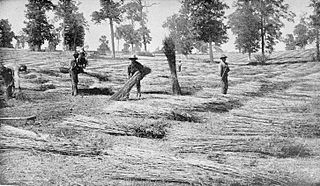
In the United States, increased restrictions and labeling of cannabis as a poison began in many states from 1906 onward, and outright prohibitions began in the 1920s. By the mid-1930s cannabis was regulated as a drug in every state, including 35 states that adopted the Uniform State Narcotic Drug Act. The first national regulation was the Marihuana Tax Act of 1937.
The Industrial Hemp Farming Act of 2009, introduced during the 111th United States Congress by House Republican Ron Paul of Texas) and House Democrat Barney Frank of Massachusetts) on April 2, 2009, sought to clarify the differences between marijuana and industrial hemp as well as repeal federal laws that prohibit cultivation of industrial, but only for research facilities of higher education from conducting research. Industrial hemp is the non-psychoactive, low-THC, oil-seed and fibers varieties of, predominantly, the cannabis sativa plant. Hemp is a sustainable resource that can be used to create thousands of different products including fuel, fabrics, paper, household products, and food and has been used for hundreds of centuries by civilizations around the world. If H.R.1866 passes American farmers will be permitted to compete in global hemp markets. On March 10, 2009, both Paul and Frank wrote a letter to their Congressional colleagues urging them to support the legislation. This bill was previously introduced in 2005 under the title of Industrial Hemp Farming Act of 2005.

In the United States, the use and possession of cannabis is illegal under federal law for any purpose by way of the Controlled Substances Act of 1970 (CSA). Under the CSA, cannabis is classified as a Schedule I substance, determined to have a high potential for abuse and no accepted medical use. Despite this, most states have legalized either or both the medical and recreational use of cannabis.

The legal history of cannabis in the United States began with state-level prohibition in the early 20th century, with the first major federal limitations occurring in 1937. Starting with Oregon in 1973, individual states began to liberalize cannabis laws through decriminalization. In 1996, California became the first state to legalize medical cannabis, sparking a trend that spread to a majority of states by 2016. In 2012, Washington and Colorado became the first states to legalize cannabis for recreational use.

Andrew Graham Beshear is an American attorney and politician who has served as the 63rd governor of Kentucky since 2019. From 2016 to 2019, he served as the 50th Attorney General of Kentucky. A member of the Democratic Party, he is the son of Steve Beshear, the 61st governor of Kentucky.

Cannabis in Wisconsin is illegal for recreational use. Possession of any amount is punishable by up to 6 months in prison and a $1000 fine for a first offense. A second offense is punished as a felony with up to 3.5 years in prison and up to a $10,000 fine. At the local level, however, numerous municipalities and counties have decriminalized cannabis or lessened penalties for minor possession offenses. Medical use is legal only in the form of low-THC cannabis oil.

Cannabis in Iowa is illegal for recreational use if classified as marijuana but consumable hemp products including CBD products are legal for consumers to possess and registered retailers to sell. Possession of even small amounts of marijuana is a misdemeanor crime. The state has a medical program for patients with qualifying debilitating medical conditions that allows for the legal sale and possession of no more than 4.5g of THC per patient every 90-day period. Allowed modes of consumption are oral & topical forms including, but not limited to; tablets and tinctures, nebulizable inhalable forms, suppositories, and vaporization.

Cannabis in Idaho is fully illegal for any use, whether recreational or medical. The laws on cannabis prohibition in Idaho are among the most severe in the United States, with possession of even small amounts of it is a misdemeanor crime, and no legality of medical marijuana. As of 2018, support for the legalization of medical cannabis is broadly popular in the state, while legalization of the drug recreationally remains a wedge issue. Both the state's legislature as a whole and its governor, Brad Little, remain staunchly opposed to its legalization for medicinal or recreational purposes.

Cannabis in Virginia is legal for medical use and recreational use. The first medical marijuana dispensary opened in August 2020, and adult recreational use became legalized in July 2021.

Cannabis in Kansas is fully illegal, and possession of even small amounts is a misdemeanor crime. Cannabis is only legal in Kansas in the form of THC free cannabidiol oil, also known as CBD.

Cannabis in North Carolina is illegal for any use except for very limited medical usage, though decriminalized for possession of 0.5 ounces or less.

Cannabis in Hawaii is illegal for recreational use, but decriminalized for possession of three grams or less. Medical use was legalized through legislation passed in 2000, making Hawaii the first state to legalize medical use through state legislature rather than through ballot initiative.

Kentucky was the greatest producer of hemp in the United States during the 19th and 20th centuries, when it was the source of three fourths of U.S. hemp fiber. Production started to decline after World War I due to the rise of tobacco as the cash crop in Kentucky and the foreign competition of hemp fibers and finished products. In 1970, federal policies virtually banned the production of industrial hemp during the War on Drugs saying all Cannabis sativa is a Schedule I controlled substance. Federal law under the Agricultural Act of 2014 allowed research back into hemp. Kentucky began production again with 33 acres in 2014. As of the 2016 harvest season, only two U.S. states other than Kentucky had over 100 acres (40 ha) in hemp production: Colorado and Tennessee. The first 500-acre commercial crop was planted in Harrison County in 2017, and research permits were issued for over 12,000 acres (4,900 ha) that year. The 2016 documentary Harvesting Liberty concerns the 21st century Kentucky hemp industry.

Hemp beer is a form of beer infused with elements of the cannabis plant. Hemp beer is not brewed from hemp directly, but hemp products such as seeds are a later flavoring addition.
The Hemp Farming Act of 2018 was a proposed law to remove hemp from Schedule I controlled substances and making it an ordinary agricultural commodity. Its provisions were incorporated in the 2018 United States farm bill that became law on December 20, 2018.
Kentucky Senate Bill 47 is a law enacted in 2023 to create a medical cannabis program in the state.
Kentucky Center for Cannabis Research is a cannabis research center at the University of Kentucky College of Medicine. It was established by House Bill 604, which became law on April 26, 2022. Its purpose under the statute is "to advance the study of the use of cannabis and cannabis derivatives for the treatment of certain medical conditions and diseases". The legislation requires the university to apply to the U..S. Drug Enforcement Administration for licenses to grow and administer medical cannabis. By October 2022, the center had received a multimillion-dollar grant to study medical cannabis for cancer patients.






